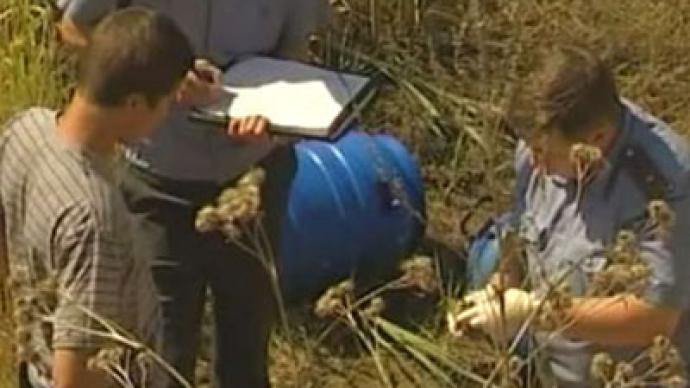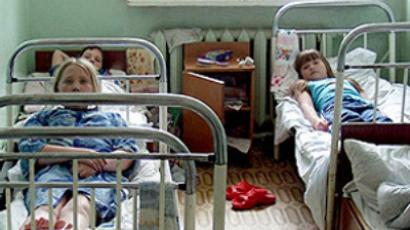Nearly 250 human fetuses dumped in forest aged at 5-6 months

Investigators say all 248 fetuses discovered in a Urals forest were likely intended for use in scientific research. Most were terminated after the fifth month of pregnancy.
According to police, forensic examinations showed most of the fetuses were terminated at 22-26 weeks of pregnancy. Initially, it was thought they were 12-16 weeks. All the fetuses were mummified.Investigators continue to probe the origin of the fetuses, which were sealed in plastic containers and discarded in a remote location in the Sverdlovsk Region. The prevailing theory is that the remains were being used in scientific research, but police emphasize that it is just one of several leads they are working around.The late stage at which all 248 fetuses were terminated has forced some to believe they are dealing with a coordinated crime.Elena Mizulina, head of the State Duma Committee on Issues of Family, Women and Children, believes this incident is a case of mass illegal abortions, which she says are rife in the country.“Such abortions are illegal,” she said in an interview to newspaper Izvestia, “because they are performed at stages when it’s dangerous for the mother, and is the murder of a rather developed embryo. What were found in those containers are not embryos – they are killed unborn human beings.”Mizulina believes the means of disposal itself – in a forest in the Urals Mountains, and not in the proper facility – shows the criminal intent of whoever was involved in this gruesome act.“This is probably an attempt to cover up a criminal activity. Whoever did this might have been expecting a visit from medical or law enforcement inspectors and wanted to get rid of incriminating evidence,” Mizulina said. Russian law allows a woman to terminate pregnancy until the 12th week. Afterwards, abortion can only be performed for medical reasons, if the mother’s life is assumed to be in danger. Miscarriages, of course, can also occur naturally at any time.
For science’s sake
One of the most prevalent theories in regards to the origin of the fetuses is improper disposal of biological material after it was used in scientific research.Investigators say they have received information that a woman who was in charge of one such project in Ekaterinburg and was fired from her position in 2011 took fetuses with her upon leaving and discarded them after completing her project. However, they do not disclose full details of the lead, saying investigators are still verifying the information. According to experts, embryos and fetuses from miscarriages and abortions are frequently used for stem cell research.Elena Mizulina says embryos at the later stages of development are especially valued by pharmacologists and cosmetologists since they present a great source of stem cells. “The demand for such ‘material’ is huge.”Some believe the fetuses were “leftovers” from a negligent experiment: “I wouldn’t be surprised if at the end it turned out that someone was gathering research material for a dissertation, and then just threw it away in this manner,” said an unidentified doctor in an interview to Gazeta.ru. Gynecologist Yuliana Abaeva also believes the fetuses may have been intended to serve as the source of vaccines.“It could be an unused abortive material for vaccines or fetal therapy, which is a cell therapy, extremely popular in cosmetology,” she said in an interview to Russian News Service.














